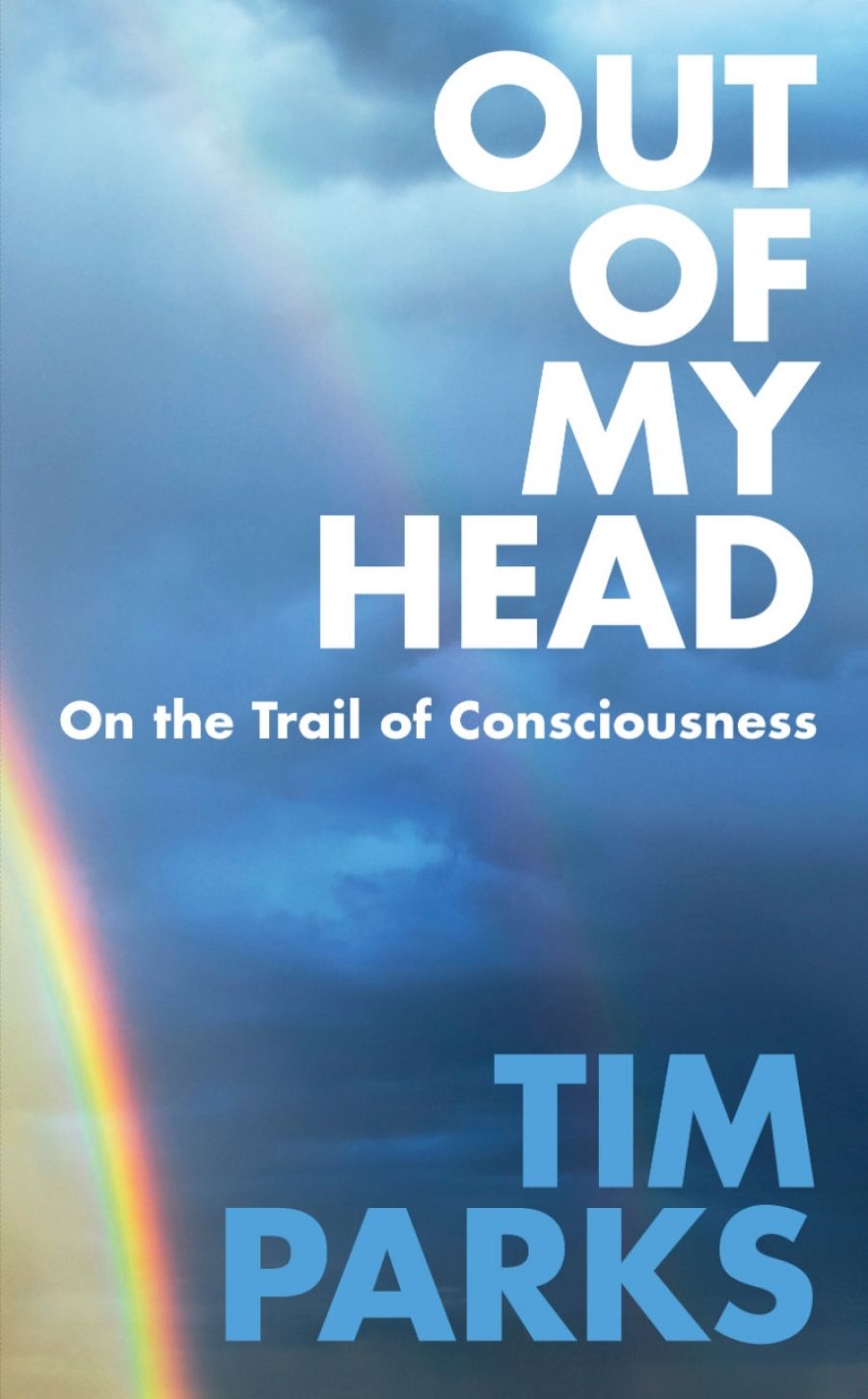
- Free Article: No
- Contents Category: Psychology
- Custom Article Title: Nick Haslam reviews 'Out of My Head: On the trail of consciousness' by Tim Parks
- Review Article: Yes
- Online Only: No
- Custom Highlight Text:
How does consciousness, the feeling of what happens, emerge from the object that Tim Parks describes in this engaging book as ‘a gruesome pinkish grey, vaguely intestinal lump’? Is mind identical with brain, is it secreted by it in some fashion, or does it, as some philosophers suggest, mysteriously ‘supervene’ on ...
- Book 1 Title: Out of My Head
- Book 1 Subtitle: On the trail of consciousness
- Book 1 Biblio: Harvill Secker, $35 hb, 312 pp, 9781911215714
Parks, a celebrated English novelist and chronicler of expatriate life in Italy, has entered the fray with a lucid investigation into the nature of experience and its grounding in the brain. His book is the product of a fellowship that brought him and other eminent humanists into contact with German scientists in the hope of sparking some deep, boundary-dissolving insights. Parks comes to the challenge with some strong preconceptions. He is critical of what he sees as the reductive imperialism of neuroscientific explanation, ‘the notion that the brain is the be all and end all’. He especially objects to the orthodox neuroscientific view that consciousness resides in the brain. The mainstream position within the cognitive sciences that experience derives from mental representations ‘in the head’ is unsatisfying and profoundly wrong to him, not least because our subjective perceptions feel as if they are outside us, in and of the external world. There is, he writes, ‘a seamless oneness of object and experience’.
Parks’s reservations about the ‘internalist’ view on consciousness are shared by a group of dissident thinkers who sometimes characterise themselves as studying ‘4E cognition’. On this view, consciousness and mind are enacted through active engagement with the world, embedded in physical interactions with the environment, extended into that environment, and embodied in our physical being beyond the brain. The rise of the 4E approach reflects a growing frustration with a computational understanding of mind as software that operates on representations somehow generated by the brain’s jellied hardware. To many, that understanding fails to do justice to the richness of experience and our sense that the mind is in the world, rather than the world merely being represented in the mind.
Parks goes further, however. He favours the radical ‘Spread Mind’ approach of Italian roboticist and philosopher Riccardo Manzotti. To Manzotti, ‘experience is made possible by the meeting of perceptive system and the world, but actually located at the object perceived, identical with it even’. The identity of object and experience is a leap too far for most philosophers, but to Parks it has a ‘strange obviousness’. The Spread Mind view encounters some notable problems accounting for experiences where no object is present, such as dreams, hallucinations, and even memories, and the delayed experience or deferred perception explanations it offers are intriguing if not entirely persuasive. It must be said that although Parks likens him without embarrassment to Galileo, Manzotti’s paradigm-smashing work has yet to shake the foundations of consciousness studies, and its closeness to mysticism makes that outcome unlikely.
 Riccardo Manzotti (photograph via YouTube)
Riccardo Manzotti (photograph via YouTube)
Many readers will delight in Parks’s vivid rendering of complex ideas. He has a masterful capacity to entertain theories of the nature of consciousness not as abstract objects of academic scrutiny but as living concerns. These concerns illuminate from within his personal reflections on meditation, love, age, and dreaming. They also give a special resonance to his discussions of Buddhism and of language, which he presents as primarily responsible for the illusion that consciousness is internal. Language privileges thought over perception, and ‘it is only in language [italics his] that objects and senses are ever really separate’. The same passion for revealing the truth of subjective feeling imparts a sharp edge to Parks’s interviews with his scientific interlocutors. These discussions tend to disappoint him, and he often seems dismayed that the authorities fail to see the limitations of their work with the clarity that he does or to share his convictions about what matters. All the same, his pursuit of the essence of consciousness is very much a shared and interactive process, propelled by his hungry curiosity, and it gives the work the narrative momentum that brain books often lack.
 Tim Parks (photograph via the British Council of Literature)
Tim Parks (photograph via the British Council of Literature)
Even so, as transporting as the book is as a record of Parks’s enquiries, it is not entirely satisfying as an exploration of the radical understanding of consciousness that sparked it. Manzotti is a shadowy presence throughout, occasionally glossed but rarely quoted. The Spread Mind theory remains rather elusive and indirectly apprehended as a result, as if handed down on stone tablets, and Parks is sensitive to the anticipated criticism that he, a layman, is somehow captivated by a wrongheaded muse. Just as Manzotti’s voice is largely absent, so too are the voices of thinkers who disagree with him. Parks interviews three highly regarded scientists during his time in Heidelberg, but consciousness is not a primary concern for two of them – one studies infant cognition, the other neurotransmission in the mouse brain – and the third does not subscribe to the ‘consciousness in the head’ cognitivist view that Manzotti and Parks most forcefully attack. A more direct confrontation with intelligent defenders of the mainstream neuroscientific position on consciousness might have given the book more intellectual heft and made it less an exercise in elegant shadow-boxing.
(A tick means you already do)


Comments powered by CComment